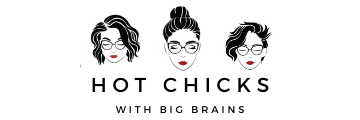Ever had a question concerning women entrepreneurs in Business? Consider the following facts:
- Women own 42 percent of all U.S.-based businesses;
- Women own 4 out of 10 firms;
- Annual revenue from women-owned business is $1.9 trillion;
- Black women-owned business expanded by 50% between 2014 and 2019, the fastest growth rate of any group based on women;
- Businesses owned by Native Hawaiian/Pacific Islanders (41 percent), Latinas/Hispanics (40 percent), Asian Americans (37 percent), and Native Americans/Alaska Natives (26 percent) grew more quickly than both women-owned businesses and businesses in general but less quickly than women of color as a whole.
Working to take advantage of this tremendous development and encourage female entrepreneurs and women in business is the Bank of America Institute for Women’s Entrepreneurship at Cornell University.
The Institute’s online certificate program has attracted 50,000 women to date. The Bank of America has just provided funding for 50,000 additional slots. The fact that 90% of the participants are women of color is particularly striking. The certificate program is the only online entrepreneurship course at an Ivy League school. It is available to everyone in the world (regardless of gender).
Raquel Solomon, the owner of Ceremonies by Raquel, is a participant in the show. As a 52-year-old single mother, she never believed she would graduate from Cornell. She signed up for the women’s entrepreneurship program in the hopes that it would give her more credibility as an entrepreneur. Although she believed she possessed the necessary credentials to launch her business, she couldn’t pass up the opportunity to attend an Ivy League institution at no expense in an area that supported her aspirations. She had no doubt that this program would propel her company to new heights, and it accomplished exactly that.
Solomon was anxious after learning she had been accepted into the program. She quickly clarified, though, that she was surrounded by women who shared her commitment to growing their businesses. She added that there was a great support system and that the colleagues are all very passionate. The teachers also are very committed to the program.
Although there is no tuition fee for the program, the expectations and level of instruction are on par with those of a school for which students pay a lot of money.
Solomon benefited much from the program as a student, gaining skills to help her firm advance as well as a great deal of confidence. What’s more, the program offered her a clear vision of her potential and how to get there; that is something many entrepreneurs struggle with. Students are tested on how to handle business disputes and other things to look out for not just as a woman but as a modern business owner. Solomon is a full-time government employee now, but she intends to retire in a few years. After which she will start providing full-service life and wedding planning services.
The Cornell University program for women entrepreneurs is financially supported by the Bank of America. Pam Seagle is the Global Manager for Women’s Programs at Bank of America. She believes that it is within the scope of the institution’s mission to support the economic growth of its communities. This is particularly true for women and underrepresented groups at Bank of America. Their $1.25 billion commitment addresses racial equality and economic opportunity. It also includes initiatives expressly aimed at aiding small companies. She also understands that structural, long-term deficiencies exist. To fix this major change is necessary for both immediate and long-term improvement.
The academic collaborator on this project is Cornell University. The Ivy League university offers top-notch instruction as part of the curriculum and has a strong female faculty.
This program gives world-class teaching from Cornell experts to any interested entrepreneurs and women in business at no cost to them.
The initiative is significant to Cornell because it offers 100,000 students access to education, networking events, and connections. The social impact of this program is not only in line with what Cornell aspires to achieve as an institution but is also in line with what the world currently needs as we exit a two-year period that has highlighted specific challenges facing so many professional women, and more specifically, women of color.
Bank of America and Cornell did not plan for such a high proportion of women of color when they started their pilot program in 2018. However, following a Forbes piece, information about the program quickly became widely known. The article was circulated in groups that encourage Black and African American women entrepreneurs and on social media. Speaking about the impact of social media, Bank of America’s Seagle stated that there is an extraordinarily strong community of dedicated women business owners.
Within the first week of launch, they exceeded their initial plan for participants. Within the first week of launch, they exceeded their initial plan for participants.
Women entrepreneurs now suggest one another to the program, share their success stories, and publish their certificates on the same online networks, which promotes the program.
Every participant in the online credential program is embarking on a different adventure. Some of them are already business owners. This training helps them fill in some of the gaps so they can run their businesses more successfully. Some students already operate a side business, and this class aids them in sorting out the specifics of starting a full-time enterprise. Some students are going through a transition in their lives. This may include retiring from a long-term job, moving, leaving the military, or taking care of young children or elderly relatives. This program helps them choose whether going into business for themselves is the best course of action. The educational part of the program delivers value to the students irrespective of where they are on their career path.

